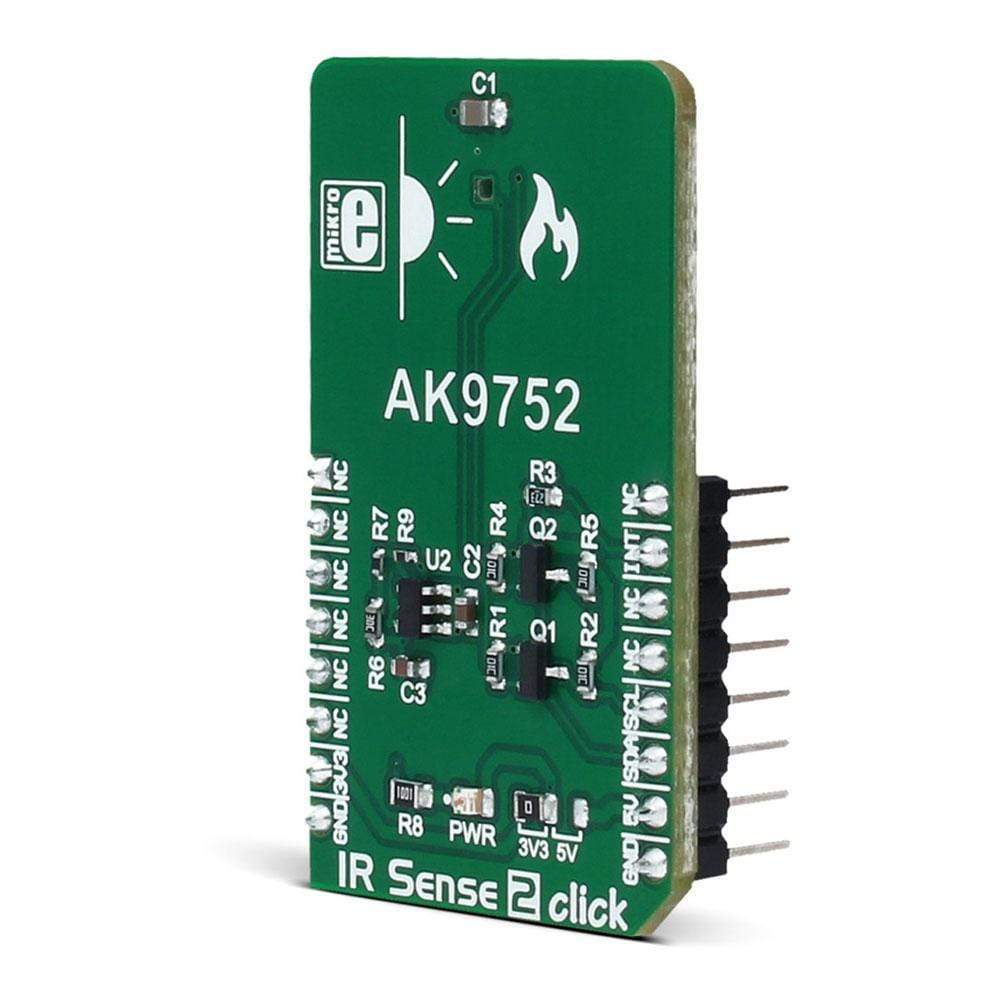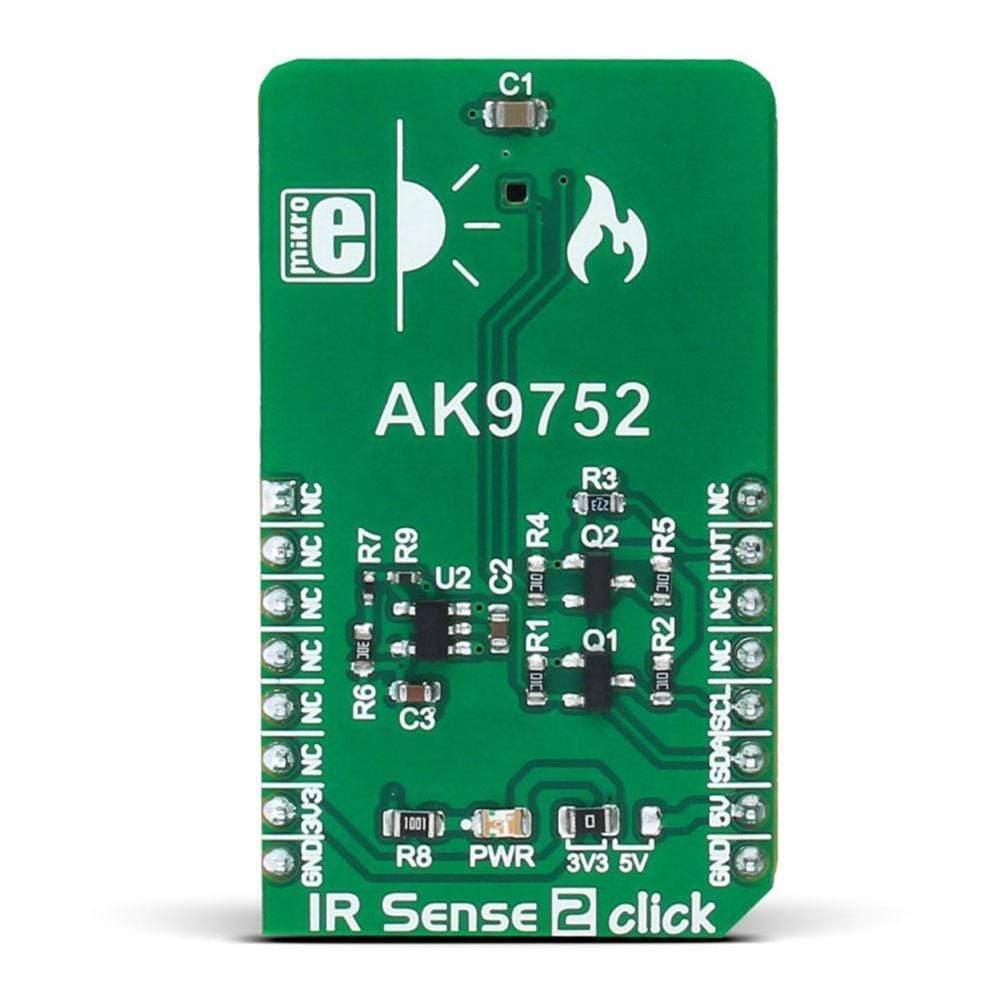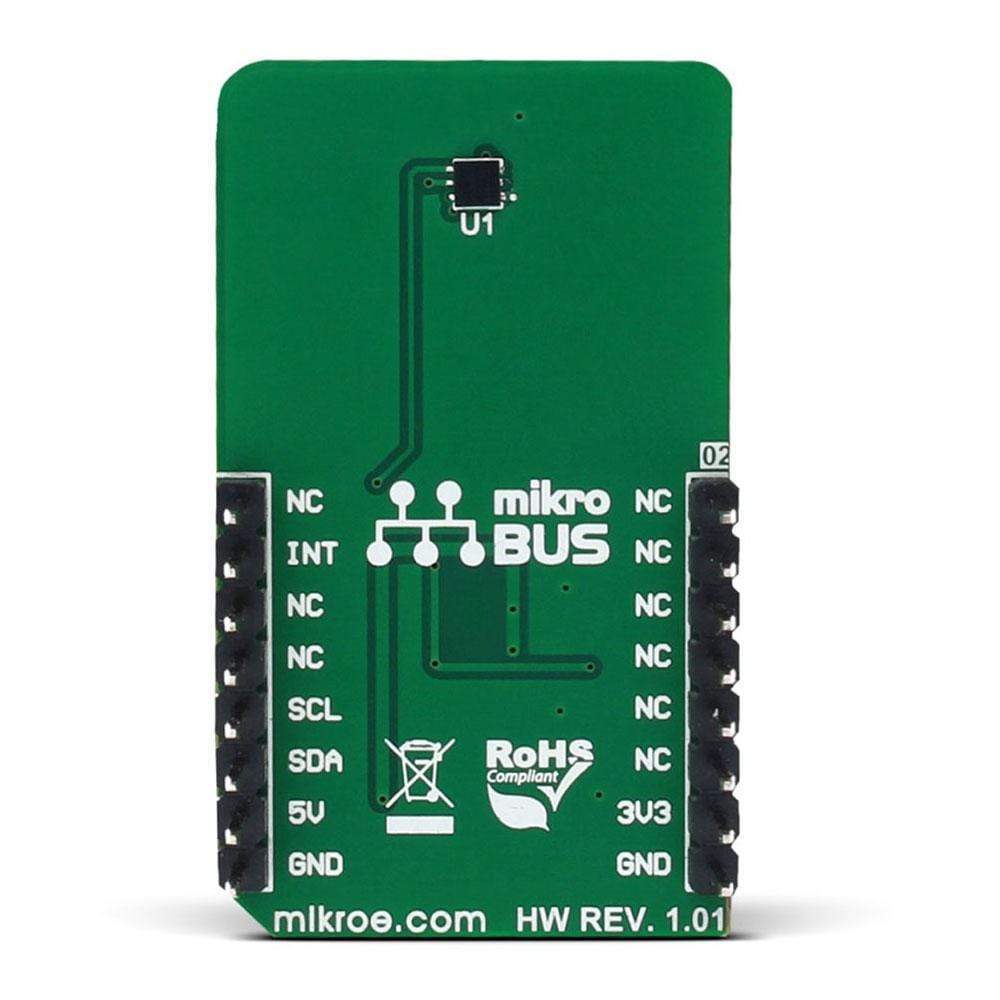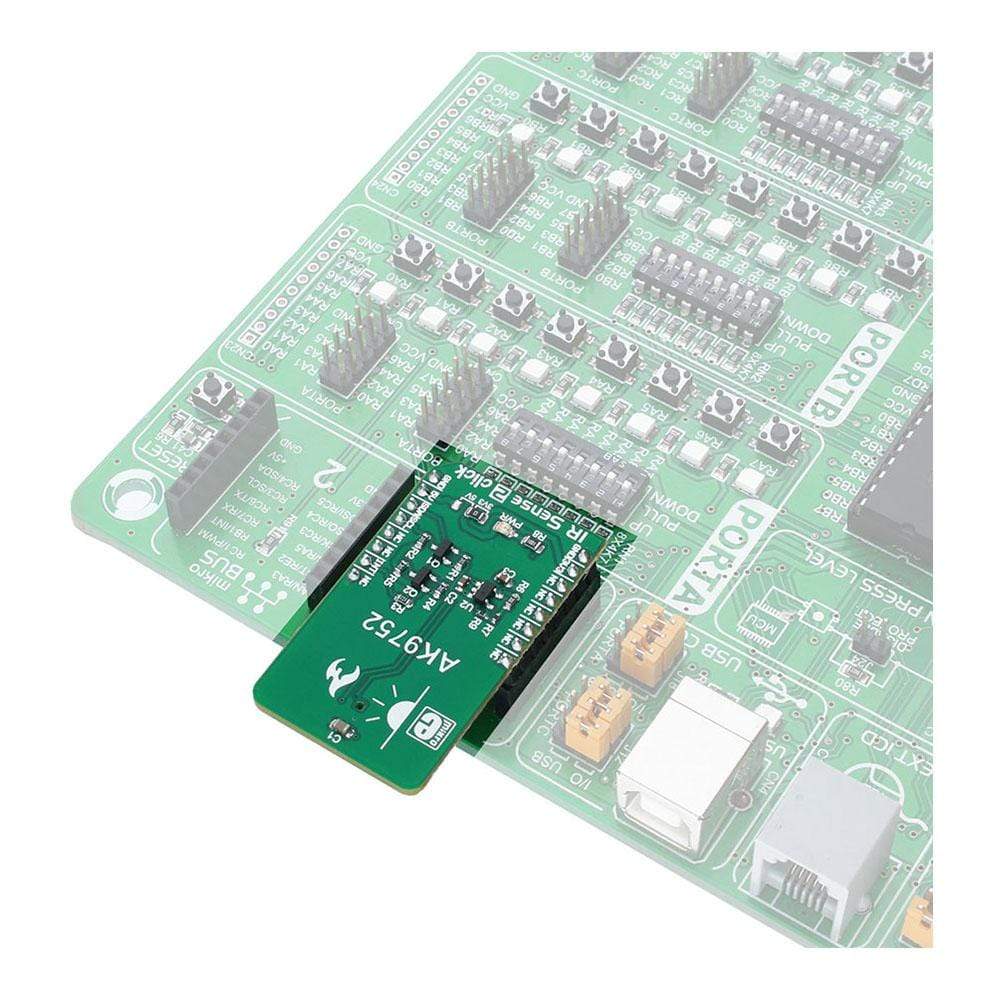



Overview
The IR Sense 2 Click Board™ is the infrared sensor Click Board™, designed to be used for short-range IR sensing applications. Unlike other pyroelectric sensors, it is able to sense environmental heat changes up to 1m, even through glass. The IR Sense 2 Click Board™ is perfectly suited for human presence detection, so it can be used in many human presence detection applications. A programmable interrupt engine simplifies the software development and saves MCU cycles, that would be otherwise wasted on polling. The ability to sense IR through the glass allows an unconstrained design of the final product.
Downloads
Das IR Sense 2 Click Board™ ist das Infrarotsensor-Click Board™, das für den Einsatz in IR-Sensoranwendungen mit kurzer Reichweite entwickelt wurde. Im Gegensatz zu anderen pyroelektrischen Sensoren kann es Umgebungswärmeänderungen bis zu 1 m erfassen, sogar durch Glas. Das IR Sense 2 Click Board™ ist perfekt für die Anwesenheitserkennung geeignet und kann daher in vielen Anwendungen zur Anwesenheitserkennung verwendet werden. Eine programmierbare Interrupt-Engine vereinfacht die Softwareentwicklung und spart MCU-Zyklen, die sonst für das Polling verschwendet würden. Die Fähigkeit, IR durch das Glas zu erfassen, ermöglicht ein uneingeschränktes Design des Endprodukts.
| General Information | |
|---|---|
Part Number (SKU) |
MIKROE-2966
|
Manufacturer |
|
| Physical and Mechanical | |
Weight |
0.018 kg
|
| Other | |
Country of Origin |
|
HS Code Customs Tariff code
|
|
EAN |
8606018712700
|
Warranty |
|
Frequently Asked Questions
Have a Question?
Be the first to ask a question about this.





